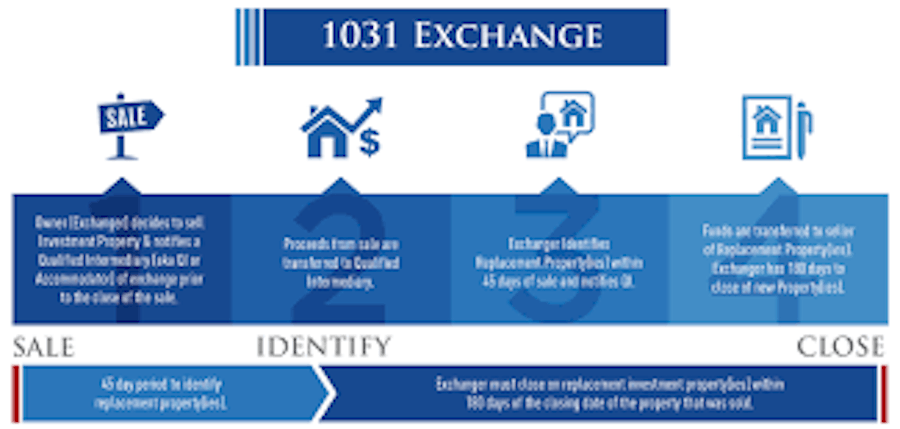Why Consider a 1031 Exchange?
Oftentimes we hear the term “1031 exchange” in New Hampshire real estate, but what exactly does it mean? It’s named after Section 1031 of the Internal Revenue Code (IRC), which allows a business or the owners of investment property to defer federal taxes on some exchanges of real estate. A properly structured 1031 exchange allows an investor to sell a property and use the proceeds from the sale to reinvest into a new property to defer all capital gain taxes. By deferring capital gain taxes, you free up more capital for investment in the replacement property. In other words, you are essentially trading your property for a similar or better one while not paying the taxes quite yet. This maneuver helps investors stay more liquid and redeploy capital gains to scale their real estate portfolios at a more meaningful pace.
How Does An Exchange Work:
For a 1031 exchange to work, you need to have two like-kind properties. A like-kind property has to do with its nature or characteristics, not its quality or grade. So for example, land for a commercial building or industrial property for residential would be like-kind properties. The property also has to be held for investment and not for resale or personal use. Three important rules within a 1031 exchange are that the replacement property must be of equal or greater value, a replacement property needs to be identified within 45 days, and the replacement must be purchased within 180 days.
Example Of A 1031 Exchange:
Now that we know what a 1031 exchange is, let’s use it in an example to help us further understand. Let’s say Tim owns an apartment building that is currently worth $1.5 million. Everything is going smoothly, but Tim learns from his real estate broker that there is a new condominium in a busier area for $2.2 million. By using a 1031 exchange, Tim can sell the $1.5 million apartment building and use the proceeds to buy the $2.2 million condominium. By deferring the capital gains tax on the sale of the original property, he will have an extra 15-20% of profit to reinvest into the new property. For Tim, this is a benefit because he is deferring his capital gains tax and depreciation recapture taxes.
What About Depreciation Recapture?
Depreciation allows real estate investors to pay lower taxes because the costs from wear and tear are deducted for a property. So, once a property is sold, the IRS wants to recapture some of those deductions so you have to pay on its taxable income. By using a 1031 exchange, it delays the process by rolling over the depreciation from your old property to the new one. It essentially just carries over from the old to the new, saving you money yet again.
A 1031 Can Spare You A Capital Gains Tax:
Deferring capital gains is a useful tool because it gives the investor more capital to use while investing. As the owner, they will eventually have to pay the deferred taxes, but not until they sell the property for cash. That way, you only pay one tax in the end at a long-term capital gains rate.
Today's Exchange Market:
A 1031 exchange is very beneficial to those looking to build wealth. Used as a tax-deferred strategy, there are many complex moving parts, so finding the right financial advisor and exchange mediator is crucial to make sure you understand the rules and avoid complications.





